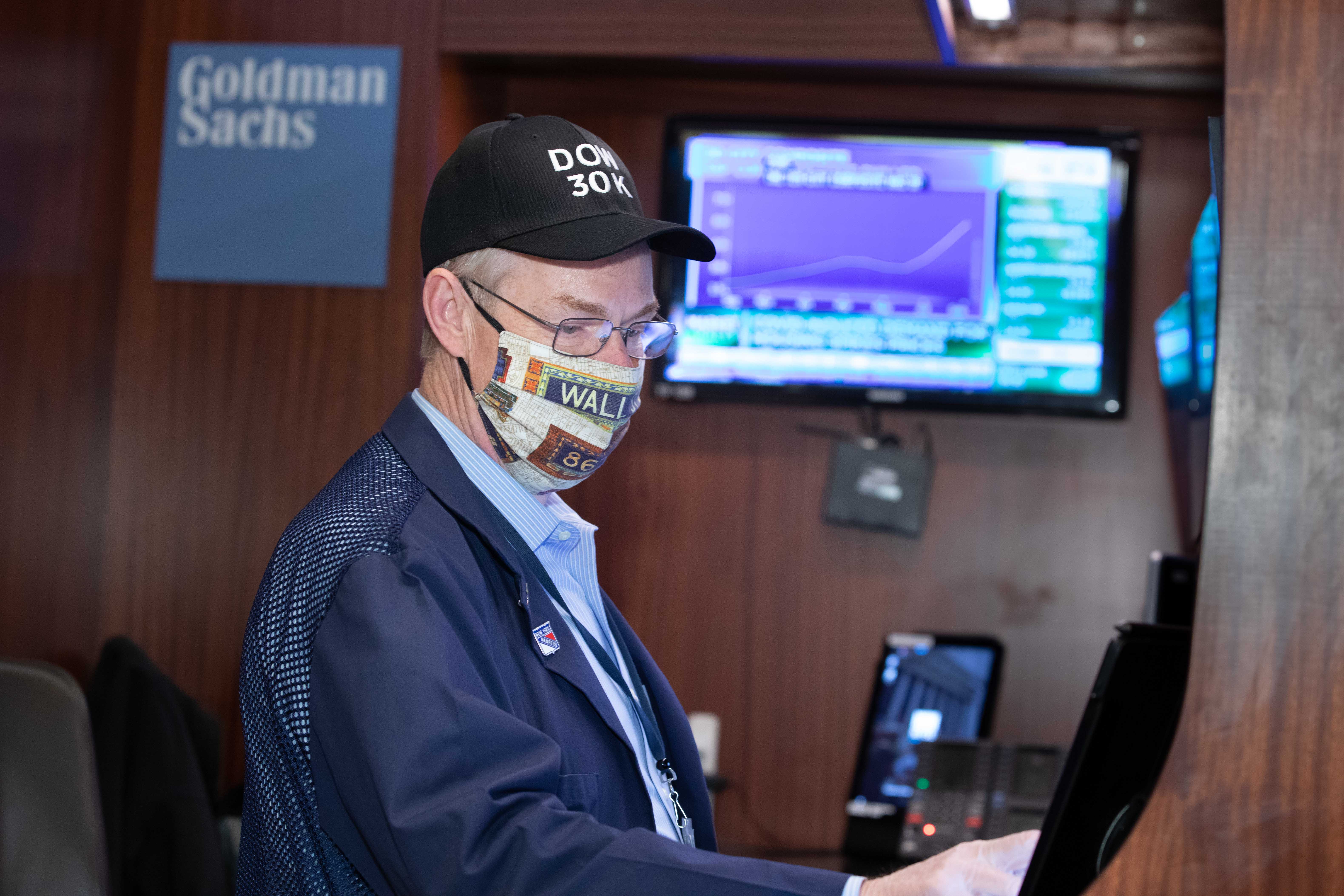
Stocks climbed on Tuesday, rebounding from a losing week, as investors digested results from the new earnings season as well as signals for another big stimulus and faster pace of vaccine distribution ahead.
The Dow Jones Industrial Average rose 116.26 points, or 0.4%, to 30,930.52. The S&P 500 gained 0.8% to 3,798.91, led by energy and communication services sectors. The tech-heavy Nasdaq Composite outperformed with a 1.5% gain to 13,197.18.
Some of the major technology stocks rebounded sharply from last week’s losses. Facebook and Alphabet climbed 3.9% and 3.3%, respectively, while Microsoft rose 1.8%. Apple and Amazon also advanced.
Shares of Goldman Sachs erased earlier gains and fell 2.3% as traders took profits after the bank topped expectations for fourth-quarter profit and revenue. The blowout results came on the back of strong performance from its equities traders and investment bankers.
Bank of America dipped 0.7% after the bank posted quarterly revenue that missed expectations. Profit came in slightly above estimates, however.
The first week of earnings season saw a historically high proportion of beats with 88% of the S&P 500 companies that reported exceeding EPS estimates, according to Bank of America data.
While the earnings cycle started out strong, many on Wall Street believe fourth-quarter earnings have been priced in and the market is focused on the 2021 outlook and the ultimate size of fiscal stimulus that would translate into profit growth.
“We expect investors will look through 4Q results and focus on company commentary about the trajectory of recovery in 2021,” David Kostin, Goldman’s head of U.S. equity strategy, said in a note. “As investors look to 2021, policy remains a key driver for corporate profits.”
Yellen urges to ‘act big’
Janet Yellen, President-elect Joe Biden’s designated nominee for Treasury Secretary and a former chair of the Federal Reserve, appeared before the Senate Finance Committee on Tuesday. Yellen called for the federal government to enact a large stimulus to help the economy.
“Neither the president-elect, nor I, propose this relief package without an appreciation for the country’s debt burden. But right now, with interest rates at historic lows, the smartest thing we can do is act big,” said Yellen. “I believe the benefits will far outweigh the costs, especially if we care about helping people who have been struggling for a very long time.”
Biden, set to be inaugurated on Wednesday, unveiled his $1.9 trillion plan for economic relief last week as the country tries to get a handle on the Covid-19 pandemic.
Stocks are “likely poised to resume upside, after ending a healthy consolidation,” wrote Fundstrat’s Tom Lee in a note, citing an increase in the pace of vaccinations and eventual rollover in coronavirus cases.
Dr. Rochelle Walensky, Biden’s pick to lead the Centers for Disease Control and Prevention, said Sunday that she’s confident the U.S. will have enough vaccine doses to meet the incoming administration’s goal of inoculating 100 million people in 100 days.
“The early stages of the vaccine rollout have been slower than expected as a more infectious strain of the virus is spreading, but we don’t see this materially changing the cumulative economic impact of the virus shock,” Jean Boivin, head of BlackRock Investment Institute, said in a note.
Tuesday’s gains came after a slump for equities last week. The S&P 500 lost 1.5% for its first weekly loss in three, while the Dow and the Nasdaq Composite slid 0.9% and 1.5%, respectively, both posting their first negative week in five.
The U.S. stock market was closed on Monday in honor of Martin Luther King Jr. Day.




